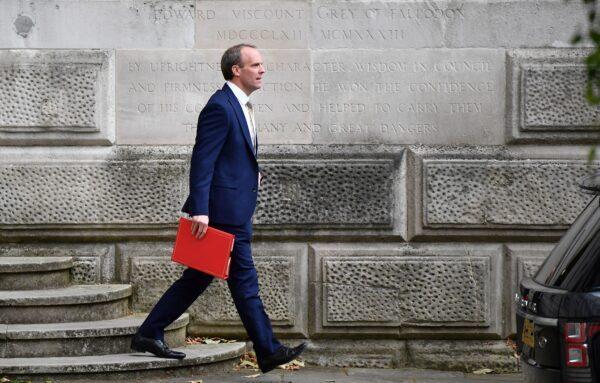The British government announced it will extend immigration rights for an estimated 3 million Hong Kong residents who hold British National (Overseas) status, following the Chinese regime’s imposition of a draconian national security law on Hong Kong.
During Prime Minister’s Questions in the House of Commons on July 1, Prime Minister Boris Johnson said that the National Security Law “constitutes a clear and serious breach of the Sino-British Joint Declaration,” as it “violates Hong Kong’s high degree of autonomy and is in direct conflict with Hong Kong basic law.”
“We made clear that if China continued down this path we would introduce a new route for those with British National (Overseas) status to enter the UK, granting them limited leave to remain with the ability to live and work in the UK and thereafter to apply for citizenship,” he said, adding “that is precisely what we will do now.”

The BNO status was a new type of British nationality created in 1985 prior to the handover of Hong Kong to China in 1997. BNO passport holders can stay in the UK for up to six months but do not automatically have the right to work or study.
Under the government’s new proposals, BNO status holders will be able to stay in the UK for five years with the right to work or study, Raab said. After five years, they can apply for settled status, and for citizenship one year later.
The family dependants of BNO status holders will also be eligible, Raab said, adding that “there will be no quota on numbers.”
The opposition Labour Party welcomed the government’s commitment to BNO status holders, but said it did not go far enough.
Lisa Nandy, the shadow foreign secretary, said in response to Raab: “I was deeply moved to see the young activists who bravely took to the streets to protest against this law at considerable personal risk. The majority of them will not be covered by this scheme. They must not be abandoned.”

She also urged the government to bring forward the Magnitsky legislation so that Britain can apply targeted sanctions on those who breach human rights in Hong Kong.
In response, Raab confirmed that both the legislation and its first designations of sanctioned individuals and entities will come before Parliament before July 29, when the summer recess begins.
The poll of around 2,000 people also revealed that 72 percent of British voters would pay a little more for critical supplies such as medical and telecoms equipment if it reduced reliance on foreign imports, and 58 percent want democratic countries to step up cooperation to counter China’s economic and strategic influence.





